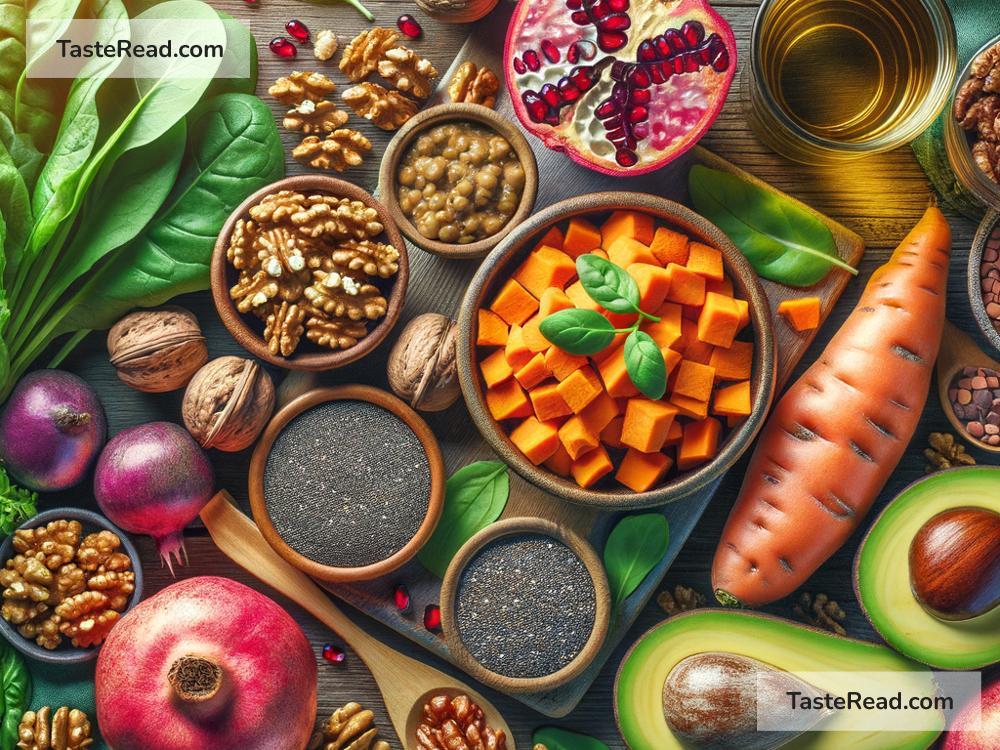Foods for Improving Cycle Regularity: A Simple Guide
If you’ve ever wondered how food and your menstrual cycle are connected, you’re not alone. What you eat can play a big role in keeping your hormones balanced and your cycle regular. Many women experience irregular cycles due to stress, lifestyle, or even medical conditions like polycystic ovary syndrome (PCOS). Making smart choices about food can help support your body and promote a regular cycle. Let’s dive into which foods are best for this purpose—and why they work!
1. Whole Grains for Stable Energy
Whole grains like oats, quinoa, brown rice, and whole wheat bread are rich in fiber and B-vitamins, which are essential for hormone health. Fiber helps to keep your blood sugar stable, which is important because blood sugar spikes can interfere with hormone production. By eating whole grains, you’re also supplying your body with B6, a vitamin that supports the production of progesterone—a hormone key to a healthy menstrual cycle.
Snack idea: A bowl of oatmeal topped with fresh fruit and nuts is a perfect start to your day.
2. Healthy Fats for Hormone Balance
Healthy fats play a major role in hormone regulation because your body needs fat to produce hormones. Avocados, nuts, seeds, olive oil, and fatty fish like salmon contain omega-3 fatty acids and other nutrients that reduce inflammation and improve blood flow to your reproductive organs.
Trans fats, like those found in fried foods and processed snacks, can negatively affect hormone health, so replace them with healthier options. Healthy fats also support the production of estrogen and help with regular ovulation.
Snack idea: Spread avocado on whole-grain toast or enjoy a handful of walnuts for a quick boost.
3. Leafy Greens for Essential Nutrients
Leafy greens, such as spinach, kale, and arugula, are packed with magnesium, calcium, and iron. Iron is particularly important because your body loses some during menstruation. Magnesium can ease PMS symptoms, promote better sleep, and support muscle relaxation—including the muscles in your uterus.
These greens are also rich in folate, which helps with cell repair and growth, and can keep your periods on track. Adding greens to your meals is a simple, nutrient-packed way to support your cycle.
Snack idea: Toss baby spinach into smoothies, or make a quick salad topped with seeds and olive oil.
4. Fiber-Rich Vegetables for Detox
Your liver plays a crucial role in breaking down and eliminating excess hormones, like estrogen, from the body. Fiber-rich vegetables—broccoli, carrots, Brussels sprouts, and zucchini—help flush out toxins and extra hormones through digestion. By keeping your system clean, you can encourage hormonal balance and avoid irregularities in your cycle.
Cruciferous vegetables, such as broccoli and cauliflower, contain compounds that support liver detoxification. Aim to include a variety of vegetables in your diet every day.
Snack idea: Roast a tray of broccoli and carrots with olive oil as a side dish.
5. Iron-Rich Foods to Replace Losses
Many women experience heavy periods, which can lead to low iron and fatigue. Foods like red meats, beans, lentils, pumpkin seeds, and dark leafy greens can replenish your iron stores and prevent anemia. To help the body absorb iron more efficiently, pair these foods with a source of vitamin C, such as tomatoes or oranges.
Low iron levels can affect energy and hormone production, so maintaining adequate iron intake is crucial for your cycle health.
Snack idea: Pair hummus (made from chickpeas, which are high in iron) with raw veggie sticks for a quick and nutrient-packed snack.
6. Probiotic-Rich Foods for Gut Health
Your gut health impacts your hormones more than you might think. A healthy gut helps regulate estrogen levels, and imbalances in gut bacteria can lead to hormonal disruptions. Foods rich in probiotics, like yogurt, kefir, sauerkraut, kimchi, and kombucha, can promote a healthy gut microbiome.
Adding probiotics to your diet can enhance nutrient absorption and reduce inflammation, creating a healthier environment for hormone production.
Snack idea: Enjoy a small dish of plain yogurt with a drizzle of honey and a sprinkle of seeds.
7. Vitamin D-Rich Foods for Hormonal Health
Vitamin D is essential for keeping your hormones balanced, and low levels of vitamin D have been linked to irregular periods and conditions like PCOS. Fatty fish, egg yolks, and fortified foods like milk are good sources of this nutrient. Spending time in the sun can also help your body naturally produce vitamin D. If you’re unable to get enough from food or sunlight, you might consider a supplement.
Snack idea: Add a boiled egg and a slice of whole-grain bread to your meal for a boost of vitamin D.
8. Cinnamon for Blood Sugar Control
Cinnamon isn’t just a tasty spice—it can also help regulate blood sugar levels, which is especially helpful for women with conditions like PCOS. Balanced blood sugar levels mean stable insulin production, which supports better reproductive health and a more consistent cycle.
You can sprinkle cinnamon over oatmeal, add it to herbal tea, or mix it into smoothies for an easy way to enjoy its benefits.
Snack idea: Stir a teaspoon of cinnamon into warm almond milk for a soothing drink.
Final Thoughts
What you eat isn’t just about nourishing your body—it’s also about supporting your reproductive health. By focusing on whole, nutrient-dense foods, you can improve hormonal balance and encourage cycle regularity. Pair these good food habits with regular exercise, stress management, and hydration for even better results.
Remember, every body is different, so it may take time to notice changes. If you experience persistent irregularities or other menstrual issues, it’s always best to consult with a healthcare professional to rule out underlying conditions.
Your cycle is one of the ways your body communicates its health—fuel it with the right foods and watch the difference!


